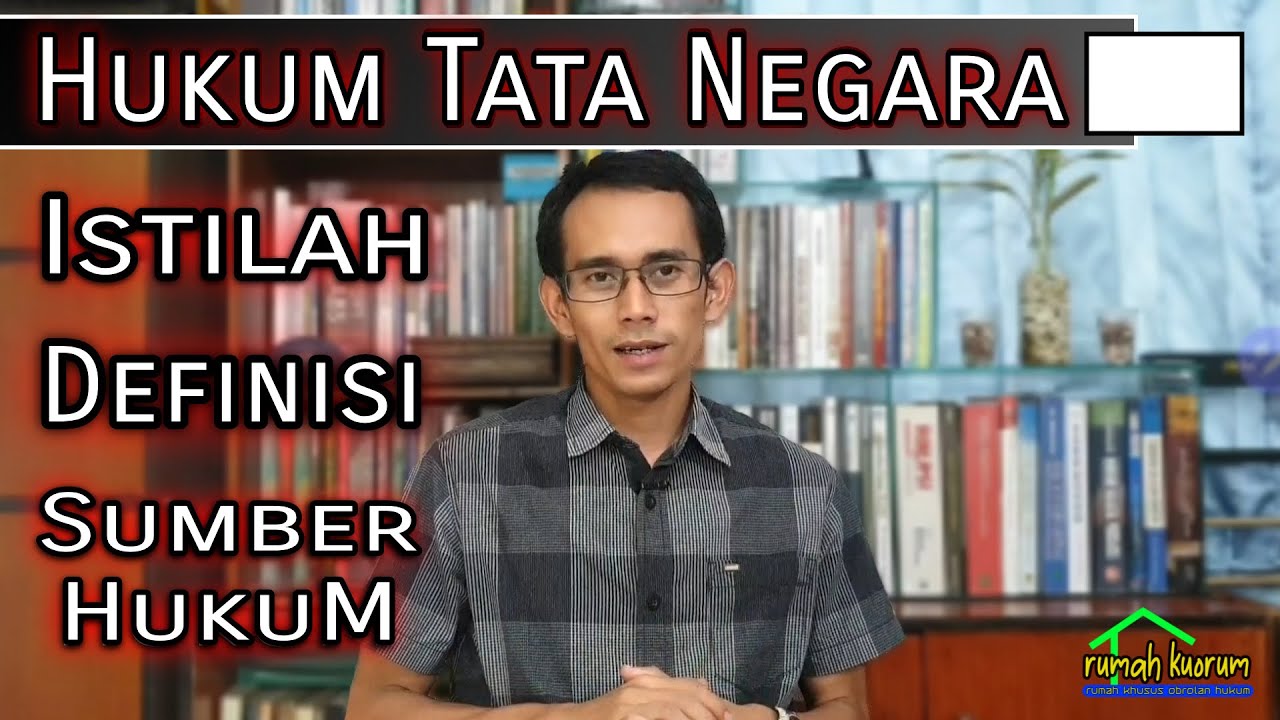Healthcare law
Summary
TLDRThis script delves into the intricate world of healthcare law, defining its scope and sources, including constitutional, statutory, and common law. It highlights the impact of federal and state legislation on healthcare delivery and the roles of various government branches in shaping these laws. The script also covers key legal concepts relevant to nursing practice, such as negligence, consent, and advanced directives, emphasizing the importance of compliance with healthcare laws for both providers and patients.
Takeaways
- 📜 Healthcare law is a collection of laws impacting health care delivery and relationships within the health care industry.
- 🏛️ The scope of healthcare law is broad, encompassing prescriptive and proscriptive principles and influenced by various government branches.
- 🌐 Sources of healthcare law include constitutional, statutory, administrative, tort, common, contract, and criminal law.
- 📊 Constitutional law provides the authority for federal health care laws, with the Due Process Clause impacting landmark cases like Roe vs. Wade.
- 👨⚖️ Common law, or case law, is shaped by judicial interpretations and can vary in impact from specific cases to nationwide implications.
- 📝 Contract law influences healthcare law through agreements like consent forms and employment contracts in healthcare settings.
- 🚨 Criminal law affects healthcare through penalties for actions like insurance fraud and breaches of patient information.
- 🛡️ Attributes of healthcare laws include being created by government bodies, enforceable, publicly accessible, and consistent with constitutions.
- 📈 Federal laws like the Social Security Act and HIPAA have significant effects on healthcare delivery, requiring policy development and compliance monitoring.
- 🏥 State Boards of Nursing regulate nursing practice, including licensing, scope of practice, and disciplinary procedures.
- 🤕 Negligence, or malpractice, in healthcare requires establishing duty, breach, causation, and harm to hold providers liable.
- 🔑 Consent laws are grounded in autonomy and protect against battery; valid consent requires information, voluntariness, and capacity.
Q & A
What is the definition of healthcare law as presented in the script?
-Healthcare law is defined as the collection of laws that have a direct impact on the delivery of health care or on the relationships among those in the business of health care or between the providers and recipients of health care.
What are the three branches of government responsible for the creation of law in the context of healthcare law?
-The executive, legislative, and judicial branches of federal and state governments hold the authority for the creation of law in the context of healthcare law.
How does the script describe the process of creating healthcare law?
-The process for creating law is through legislation, litigation, or regulatory activities by government agencies. These processes are interwoven and foster a continuing evolution in healthcare law.
What is the role of the Due Process Clause of the Fourteenth Amendment in healthcare law?
-The Due Process Clause of the Fourteenth Amendment was the constitutional legal principle under which the Supreme Court decided the landmark 1973 case of Roe vs. Wade, recognizing a constitutional right to privacy, inclusive of a woman's right to terminate her pregnancy.
What is common law or case law in the context of healthcare law?
-Common law or case law is a type of law that arises from the interpretation of the law by judges or the judicial branch of government. It is created when statutory laws, applicable regulations, and legal precedents are analyzed in the context of a case under review.
How does contract law influence healthcare law?
-Contract law influences healthcare law through the use of contracts such as conditions of admission and consent forms, which represent a contract between the patient and the healthcare facility or provider. It also defines work agreements for healthcare providers.
What is the significance of the 10th Amendment in relation to healthcare law?
-The 10th Amendment states that the powers not delegated to the U.S. by the Constitution, nor prohibited by it to the states, are reserved to the states respectively or to the people. This means that state governments have powers that include anything not specifically described as a power of the United States, affecting healthcare law.
What are the four elements that must be satisfied to establish liability in a negligence case?
-The four elements are duty, breach of duty, causation, and injury or harm. Duty refers to the professional obligation to exercise care, breach of duty is falling below the standard of care, causation is the link between breach and injury, and injury or harm is the actual harm suffered by the patient.
How does the script differentiate between healthcare laws and accreditation requirements?
-Healthcare laws are distinguished from accreditation requirements by considering major attributes such as being created by a government body with appropriate authority, having enforceable sanctions, being publicly available, and being consistent with national and state constitutions. Minor attributes may include incentives, self-limited nature, and varying scope.
What is the concept of vicarious liability in the context of employer-employee relationships in healthcare?
-Vicarious liability, also known as the doctrine of respondeat superior, is the legal principle where an employer can be held liable for the negligent acts of its employees if the employee was acting within the scope of employment.
What are advanced directives and how do they relate to healthcare law?
-Advanced directives are legal documents such as living wills and medical power of attorney for healthcare decisions that identify how a patient wishes to be treated in certain medical conditions and who should make decisions on their behalf if they are unable to do so. Healthcare law provides guidelines for the execution and enforcement of these directives.
Outlines

Этот раздел доступен только подписчикам платных тарифов. Пожалуйста, перейдите на платный тариф для доступа.
Перейти на платный тарифMindmap

Этот раздел доступен только подписчикам платных тарифов. Пожалуйста, перейдите на платный тариф для доступа.
Перейти на платный тарифKeywords

Этот раздел доступен только подписчикам платных тарифов. Пожалуйста, перейдите на платный тариф для доступа.
Перейти на платный тарифHighlights

Этот раздел доступен только подписчикам платных тарифов. Пожалуйста, перейдите на платный тариф для доступа.
Перейти на платный тарифTranscripts

Этот раздел доступен только подписчикам платных тарифов. Пожалуйста, перейдите на платный тариф для доступа.
Перейти на платный тарифПосмотреть больше похожих видео
5.0 / 5 (0 votes)






